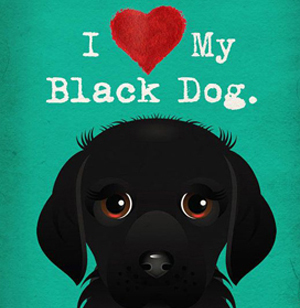Manners, Customs, Clothing
 |
 |
 |
 |
 |
 |
 |
‘Bye, I Love You’
I had just met the young son of an acquaintance, an engaging lad I will call Michael. As we prepared to take leave of each other, the mother, mindlessly following modern habits, told Michael, "We're going to leave now. I think Dr. Horvat needs a hug."
 Dr. Horvat did not need a hug nor was she inclined to give one to a child she had had just met 15 minutes ago. But, she would accept it, of course, to be polite.
Dr. Horvat did not need a hug nor was she inclined to give one to a child she had had just met 15 minutes ago. But, she would accept it, of course, to be polite.
The boy dutifully gave the prescribed hug and said, "Bye, I luv ya."
"Good bye, Michael," I replied. "It was a pleasure to meet you."
What struck me forcefully in this short episode was not only how the embrace has been cheapened with overuse, but also how the important and profoundly meaningful words “I love you” are becoming trivialized as part of the egalitarian process of the modern day world.
Assueta vilescunt - Habit debases
Assueta vilescunt. That is to say, the customary use of things makes them banal and trivial. If it is precious or valuable, when it is overused, it is no longer honored as it should be or treated with the respect it is due.
This applies to symbols: for example, our flag is being notoriously banalized by imprinting it everywhere – on boxer shorts or tennis shoes, just to mention a few uses. Under the pretext of being patriotic, what we are actually doing is to profane the values of our Nation.
 We can banalize gestures: for example, the embrace, which should only be given to relatives and close friends who realize the ideal of a true and sincere friendship. When we embrace everyone, including our enemies, this symbol of a close friendship completely loses its meaning.
We can banalize gestures: for example, the embrace, which should only be given to relatives and close friends who realize the ideal of a true and sincere friendship. When we embrace everyone, including our enemies, this symbol of a close friendship completely loses its meaning.
And certainly, we can trivialize words. The most expressive example is how the serious and expressive phrase “I love you” has come very close to saying almost nothing.
These words signify one of the highest and noblest sentiments of man. Love is an act of the will that indicates that he desires the best possible for the person who benefits from his affections and is willing to sacrifice himself for that end. Scriptures speaks splendidly of love as charity and poets make grandiloquent verses in its honor.
It used to be that these words, which have a deep significance, were not spoken lightly. They were reserved for very special occasions and said only for particular persons and relationships, parents and children, husbands and wives, etc. When the suitor first spoke them to the young lady he was courting, it was a moment to be remembered and cherished.
 They were words that expressed par excellence an exceptional sentiment born from a great affinity of wills and a singular intention of lifelong dedication. We take this noble position of soul for but very few persons. We can have this sentiment toward our parents, siblings, children and spouses.
They were words that expressed par excellence an exceptional sentiment born from a great affinity of wills and a singular intention of lifelong dedication. We take this noble position of soul for but very few persons. We can have this sentiment toward our parents, siblings, children and spouses.
The rareness of this sentiment corresponds perfectly to the monogamist marriage – one husband for one wife. Once in a while we dedicate an analogous love to a superior whom we take as a model. However, we never say to a superior, “I love you.”
No one can have this rare and extraordinary intensity of love for every person he meets.
The love we are supposed to have for our neighbor is of a different type, which does not require the declaration “I love you.” It is a calm and normal love that is expressed and understood by the actions made and the manner they are undertaken and received. It does not require anything else.
The rare manifestation of love that requires a declaration of love must be limited and not trivialized or made common.
Nowadays, everyone says “I love you” to almost everyone. Still worse, in today's common usage, it is too much trouble to speak the words clearly. The phrase has been simplified, reduced to a simple "luv ya." "See u later; luv ya." "Had fun hanging out with u. Luv ya." or just "luv ya lots."

 What kind of “luv” is this? A vulgar, watered down version that essentially means ”I enjoyed being with you.” One day you “luv” someone, the next day you can “break up” or “unfriend” the same person. The importance, respect and veneration given to the authentic sentiment of love has clearly been sensibly diminished. What should be exceptional became vilified by routine.
What kind of “luv” is this? A vulgar, watered down version that essentially means ”I enjoyed being with you.” One day you “luv” someone, the next day you can “break up” or “unfriend” the same person. The importance, respect and veneration given to the authentic sentiment of love has clearly been sensibly diminished. What should be exceptional became vilified by routine.
The term love is not only overused in farewells and texting, but is becoming superficial by its constant application to trifling matters. "I love that chocolate cake. It's to die for." Really? Do you really "love" chocolate cake, putting it on the same level as your child, your husband, your mother? Are you really willing to give your life for another piece of that delectable cake? To be willing to give one's life for the Catholic Faith, absolutely yes. For a dessert, no.
The list of what the modern man purports to love is endless: "I love that restaurant, I love to barbeque, I love my dog, my cat, my hamster, my Subaru…”
The word loses its meaning and becomes as banal as the objects one claims to love. “To love” is trivialized, flattened and loses its original noble meaning.
I believe that the Revolution is promoting this inflation of the word “love” in order to end by destroying all noble sentiments in modern men.
Abusus non tollit usum
Having begun with one germane Latin phrase, let me end with another to offer a solution to the problem of when to pronounce our love.
Abusus non tollit usum - The abuse does not preclude proper use. Once a counter-revolutionary Catholic becomes aware of a trend that trivializes a valuable sentiment like love, he will begin to take special care in using those words properly, speaking or writing them only at suitable times and not as something casual. No more “Bye, luv ya.” He should have a moment of consideration before spontaneously announcing "I love football!" or "I love blue skirts!"
Making this effort, we may make a commendable effort to elevate ourselves and fight the egalitarianism that is invading every sphere of life, including language.

Posted July 12, 2017

A mousepad tells everyone ‘luv ya’
The boy dutifully gave the prescribed hug and said, "Bye, I luv ya."
"Good bye, Michael," I replied. "It was a pleasure to meet you."
What struck me forcefully in this short episode was not only how the embrace has been cheapened with overuse, but also how the important and profoundly meaningful words “I love you” are becoming trivialized as part of the egalitarian process of the modern day world.
Assueta vilescunt - Habit debases
Assueta vilescunt. That is to say, the customary use of things makes them banal and trivial. If it is precious or valuable, when it is overused, it is no longer honored as it should be or treated with the respect it is due.
This applies to symbols: for example, our flag is being notoriously banalized by imprinting it everywhere – on boxer shorts or tennis shoes, just to mention a few uses. Under the pretext of being patriotic, what we are actually doing is to profane the values of our Nation.

Telling everyone ‘love you’ makes the words meaningless
And certainly, we can trivialize words. The most expressive example is how the serious and expressive phrase “I love you” has come very close to saying almost nothing.
These words signify one of the highest and noblest sentiments of man. Love is an act of the will that indicates that he desires the best possible for the person who benefits from his affections and is willing to sacrifice himself for that end. Scriptures speaks splendidly of love as charity and poets make grandiloquent verses in its honor.
It used to be that these words, which have a deep significance, were not spoken lightly. They were reserved for very special occasions and said only for particular persons and relationships, parents and children, husbands and wives, etc. When the suitor first spoke them to the young lady he was courting, it was a moment to be remembered and cherished.

A declaration of love used to be a serious expression of commitment, as in courtship
The rareness of this sentiment corresponds perfectly to the monogamist marriage – one husband for one wife. Once in a while we dedicate an analogous love to a superior whom we take as a model. However, we never say to a superior, “I love you.”
No one can have this rare and extraordinary intensity of love for every person he meets.
The love we are supposed to have for our neighbor is of a different type, which does not require the declaration “I love you.” It is a calm and normal love that is expressed and understood by the actions made and the manner they are undertaken and received. It does not require anything else.
The rare manifestation of love that requires a declaration of love must be limited and not trivialized or made common.
Nowadays, everyone says “I love you” to almost everyone. Still worse, in today's common usage, it is too much trouble to speak the words clearly. The phrase has been simplified, reduced to a simple "luv ya." "See u later; luv ya." "Had fun hanging out with u. Luv ya." or just "luv ya lots."

The triviliazation of love is common today

The term love is not only overused in farewells and texting, but is becoming superficial by its constant application to trifling matters. "I love that chocolate cake. It's to die for." Really? Do you really "love" chocolate cake, putting it on the same level as your child, your husband, your mother? Are you really willing to give your life for another piece of that delectable cake? To be willing to give one's life for the Catholic Faith, absolutely yes. For a dessert, no.
The list of what the modern man purports to love is endless: "I love that restaurant, I love to barbeque, I love my dog, my cat, my hamster, my Subaru…”
The word loses its meaning and becomes as banal as the objects one claims to love. “To love” is trivialized, flattened and loses its original noble meaning.
I believe that the Revolution is promoting this inflation of the word “love” in order to end by destroying all noble sentiments in modern men.
Abusus non tollit usum
Having begun with one germane Latin phrase, let me end with another to offer a solution to the problem of when to pronounce our love.
Abusus non tollit usum - The abuse does not preclude proper use. Once a counter-revolutionary Catholic becomes aware of a trend that trivializes a valuable sentiment like love, he will begin to take special care in using those words properly, speaking or writing them only at suitable times and not as something casual. No more “Bye, luv ya.” He should have a moment of consideration before spontaneously announcing "I love football!" or "I love blue skirts!"
Making this effort, we may make a commendable effort to elevate ourselves and fight the egalitarianism that is invading every sphere of life, including language.

Posted July 12, 2017
______________________
______________________








